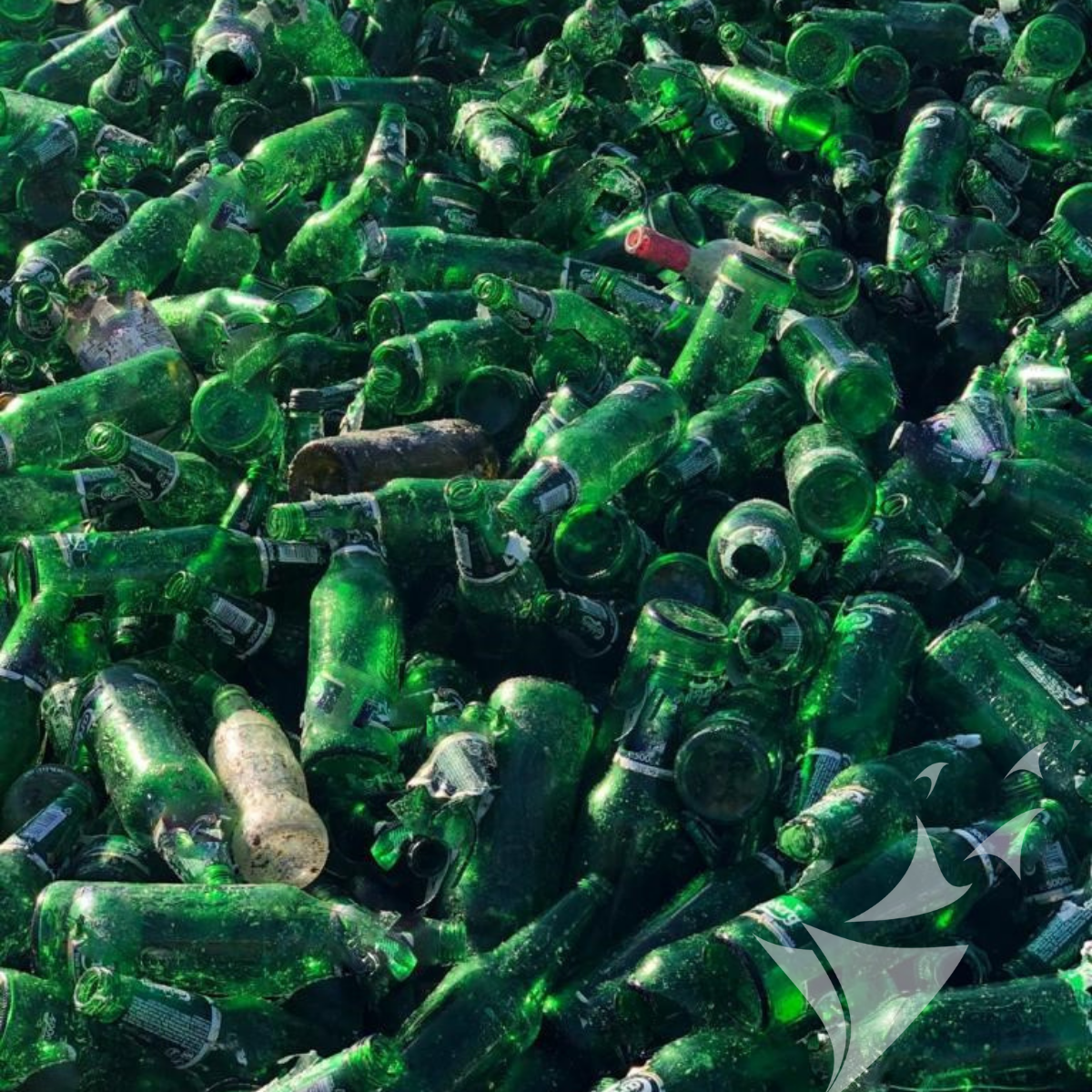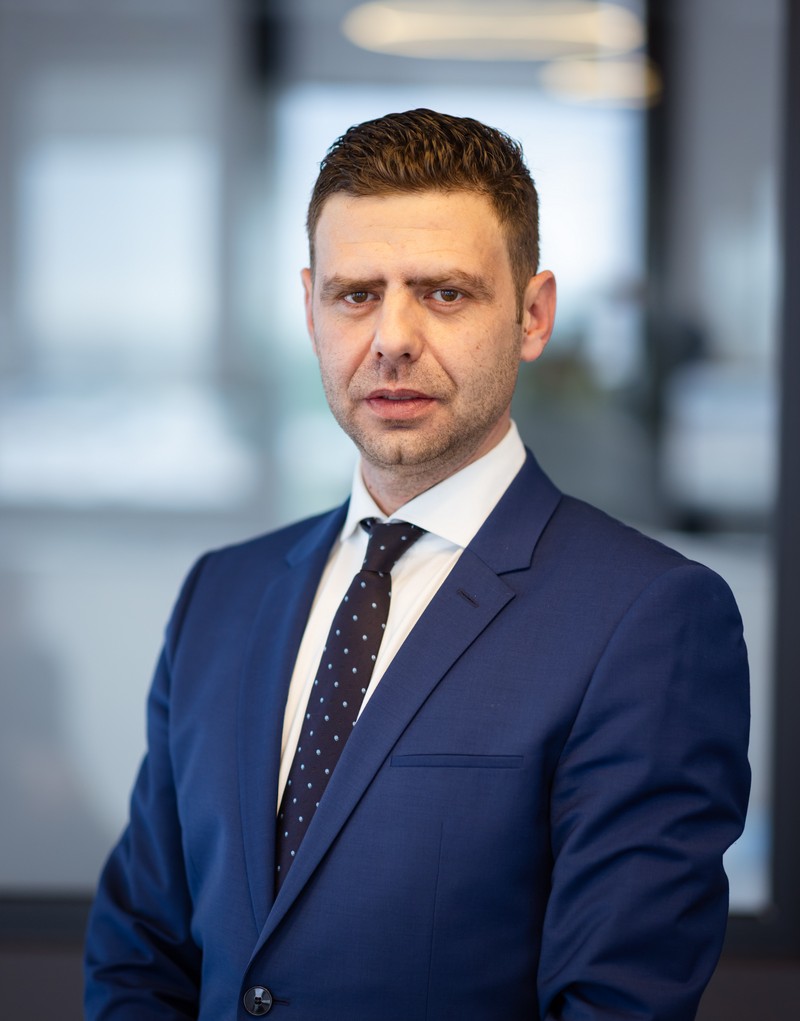Marius Costache is the CEO of GreenGlass and GreenWEEE, part of GreenGroup, with over 15 years of experience in the waste management industry, focusing on the collection and recycling of glass packaging waste and waste electrical and electronic equipment (WEEE). He is involved, both nationally and internationally, in studies on the economic analyses of business models regarding glass recycling and actively promotes the principles of the circular economy, sustainability, and reducing the impact of waste on the environment. He is a supporter of innovative and sustainable solutions in the recycling field.
About GreenGlass Recycling
Part of GreenGroup, GreenGlass Recycling is Romania's most modern glass recycling factory, with end-of-waste certification. The end-of-waste certification signals that the glass recycled at GreenGlass can be treated and used as raw material similarly to the original materials, demonstrating compliance with European standards for recycling.
.png)
Key figures for GreenGlass
Established in 2013, GreenGlass is a Romanian company that pioneered glass recycling in Romania, with an investment of 5 million euros and a recycling capacity of 110,000 tons/year. Through advanced technological processes and optoelectronic sorting facilities, we transform over 200 million glass packaging annually into billions of cullet shards, valuable resources for the packaging industry.
1. What are the expectations for 2024?
For the year 2024, we anticipate several significant developments in glass recycling in Romania. The implementation of the deposit-return system is seen as a key factor in increasing the glass collection rate and reducing the amount of glass waste being lost in the landfills. We anticipate that GreenGlass will play a crucial role in providing the infrastructure and capacities needed to efficiently manage the flow of recycled glass from this system.
Additionally, collaboration with the country's main glass producer has allowed us to achieve a 60% recycled glass content in new packaging, and this trend is expected to continue in the coming years, contributing to the stabilization and growth of recycled glass flow for production.
2. What are the advantages of glass recycling, not only environmentally but also from an economic and sustainable development perspective?
Economically, glass recycling can generate significant cost savings. The process of melting recycled glass requires less energy than that of virgin raw materials because recycled glass has a lower melting point. Reducing energy consumption and extending the lifespan of melting furnaces lead to cost savings for producers as well as reducing the carbon footprint associated with energy use.
3. Why is it important to maintain glass in a closed recycling loop?
Glass is a material capable of being recycled indefinitely without losing its quality. By recycling glass in a closed-loop system, the need for extracting and processing raw materials is reduced, helping to conserve natural resources and reduce CO2 footprint associated with the entire glass manufacturing process, from extraction to new products.
The durability quality of glass sets it apart from other materials, such as plastic, which degrades over time. Additionally, even with impurities, glass poses fewer challenges in recycling. Thus, simplicity is the characteristic that makes glass an extremely valuable and sustainable resource in the circular economy.
4. What are the main challenges encountered in trying to maintain a closed glass recycling loop?
One of the biggest obstacles in glass recycling is contamination with other materials, which affects the quality of the glass and can make the recycling process more costly and difficult.
Although glass has good collection rates in Romania, less than 20% of what is collected ends up being recycled in a closed loop. The rest ends up in applications that remove glass from the economic cycle, such as being used in paving stones or concrete blocks. We trust that this will change with the deposit-return system.
5. Recently, Romania joined the Close the Glass Loop platform, through CERC, of which you are a member, and GreenGlass. What importance and implication does this have for the development of GreenGlass?
We are at a crucial moment for promoting the circular economy, especially considering the deadlines for meeting European objectives for glass collection and recycling. And the Close the Glass Loop platform creates a communication bridge between all stakeholders in the glass value chain and provides valuable expertise through case studies and concrete examples from other countries, which can be applied in Romania's case.
GreenGlass Recycling is an important player in the team with which Romania will have to achieve the target proposed by joining the Close the Glass Loop, namely 90% collection and recycling of glass waste. Also, by joining this European platform, we expect to benefit from more motivating secondary legislation.











